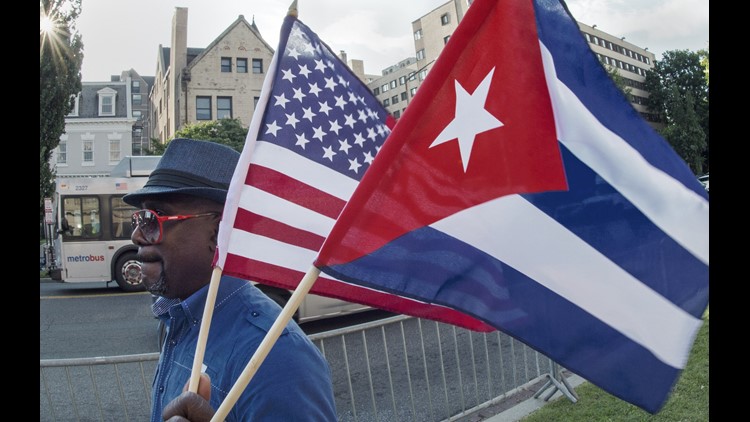WASHINGTON (CNN) — President Barack Obama is ending the longstanding “wet foot, dry foot” policy that allows Cubans who arrive in the United States without a visa to become permanent residents, two senior US officials told CNN Thursday.
The policy, in place for more than two decades, has applied solely for Cubans. Other immigrants who attempt to enter the United States without a visa face arrest and deportation.
The decision was likely Obama’s last move in his historic dealings with Cuba. In 2014, he reopened ties to the island nation after a half-century of frozen diplomatic ties.
Havana has long argued the policy encourages Cubans to make the dangerous crossing from Cuba to Florida. Immigrants from other nations have argued the policy amounts to preferential treatment for one group.
The Cuban government has been informed of the decision to end the controversial policy towards Cuban refugees, according to a senior Cuban government official.
On Thursday, a senior administration official said the US Department of Homeland Security would eliminate the policy that made Cuban nationals eligible for resident status within one year of arriving in the US.
Instead, the US government will consider residency requests from these Cubans in the same way other migrants are processed when they arrive into the country.
The Department of Homeland Security has also eliminated a policy for Cuban medical professionals known as the Cuban Medical Professional Parole Program, according to a senior administration official.
DHS is also eliminating an exemption that previously prevented the use of expedited removal proceedings for Cuban nationals apprehended at ports of entry or near the border.
The existing Cuban Family Reunification Parole Program is not affected by this announcement and remains in effect, the official said.
Following the thawing of relations between the Cold War enemies, Cubans, afraid the policy would soon end, began leaving the island in greater numbers.
The number of Cuban migrants entering the US doubled from 2014 to 2015, when relations were reestablished.
Many who leave use makeshift rafts to cross the Straits of Florida into the United States.
“I think it’s a good idea,” said Vermont Democratic Sen. Patrick Leahy, long a proponent of thawing relations between the US and Cuba. “We were telling the rest of the world they were different, and I don’t think that was the right thing to do.”



